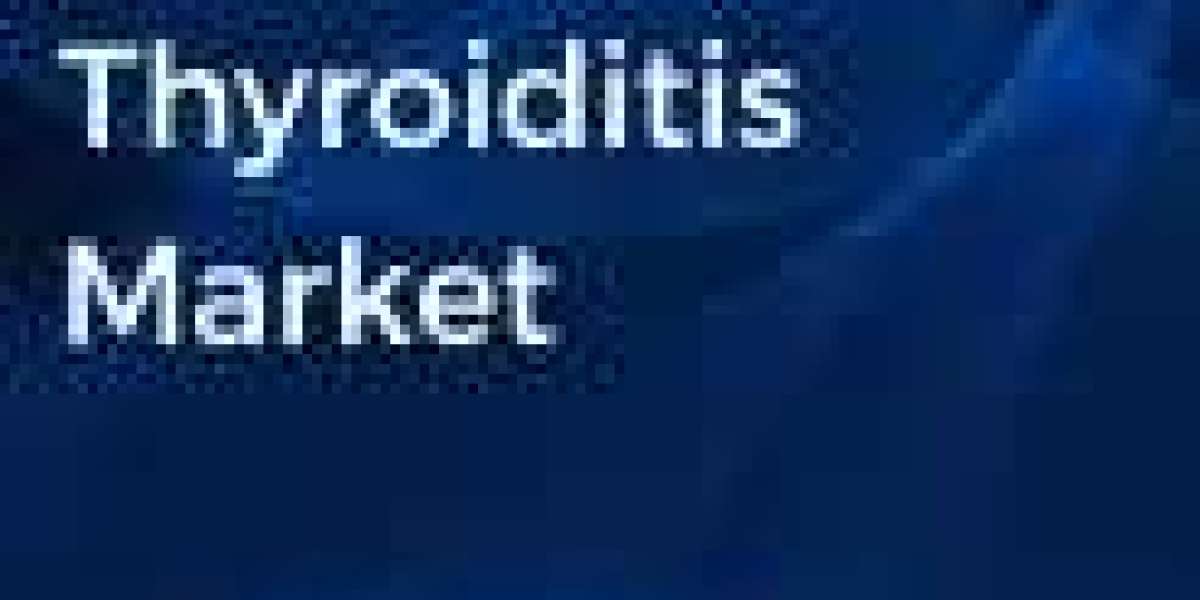Hashimoto's thyroiditis represents the most prevalent autoimmune thyroid disorder globally, serving as the primary cause of hypothyroidism in iodine-sufficient regions. The condition's burden continues expanding due to increased autoimmune susceptibility, enhanced diagnostic capabilities, and broader screening initiatives across healthcare systems worldwide.
The Hashimoto's Thyroiditis Drugs Market is experiencing substantial transformation driven by accelerated diagnostic protocols, standardized treatment guidelines, and innovative therapeutic development targeting disease modification beyond conventional hormone replacement approaches.
Current Treatment Landscape
Traditional market revenues have centered on thyroid hormone replacement therapies, primarily levothyroxine, supplemented by selective liothyronine applications and combination regimens. This conventional approach stabilizes thyroid function while leaving underlying autoimmune mechanisms unaddressed, failing to prevent ongoing glandular destruction.
The Hashimoto's Thyroiditis Treatment Market demonstrates consistent growth through 2034, supported by enhanced disease recognition across primary care, gynecological, and endocrine specialties, expanded diagnostic testing including TSH, free T4, and antibody panels, and accelerated treatment initiation with refined dosing protocols enhanced by digital monitoring systems.
Levothyroxine remains the therapeutic cornerstone, with dosing refined through weight-based algorithms and comprehensive absorption factor evaluation. Liquid and soft-gel formulations increasingly address patients with absorption difficulties or variable TSH responses. Liothyronine monotherapy or combination protocols serve patient subsets experiencing persistent symptoms despite TSH normalization, though evidence remains mixed with significant regional variations.
Clinical Needs and Innovation Pipeline
Despite widespread LT4 availability, substantial therapeutic gaps persist. No approved therapies demonstrate reliable autoimmune reduction, prevention of subclinical-to-overt disease progression, or endogenous thyroid function restoration. Significant patient populations experience ongoing fatigue, cognitive dysfunction, and mood disturbances despite biochemical normalization.
Multiple breakthrough approaches are advancing through development phases. B-cell and plasma cell modulation strategies utilize established autoimmune treatment insights to reduce autoantibody synthesis through targeted therapeutic interventions. Cytokine and T-cell pathway inhibitors focus on restoring thyroidal autoimmune equilibrium. Specialized immunotherapy platforms employ peptide-based or nanoparticle delivery systems designed to establish tolerance against thyroid antigens without systemic immune suppression.
Market Dynamics and Regional Analysis
The Hashimoto's Thyroiditis Therapeutics Market remains dominated by multisource levothyroxine products with smaller branded segments. Formulation differentiation through liquid, soft-gel, and bioavailability consistency innovations represents the primary competitive arena.
North American markets demonstrate high screening penetration and comprehensive specialist accessibility, supporting stable revenue growth. European markets feature harmonized guidelines with diverse reimbursement frameworks, while Asia-Pacific regions present substantial opportunities through large undiagnosed populations with expanding healthcare coverage. Emerging markets show progressive diagnostic improvements with generic product dominance.
Market growth faces constraints from price sensitivity, conservative clinical guidelines prioritizing proven evidence, heterogeneous symptom presentations complicating trial endpoints, and stringent regulatory requirements for chronic autoimmune conditions.
Future Outlook and Strategic Implications
The Hashimoto's Thyroiditis Market Outlook projects sustained compound annual growth through 2034, with revenues maintaining LT4 foundation while incorporating contributions from differentiated formulations and potentially disease-modifying therapies upon clinical validation.
Critical success factors include pivotal clinical data for tolerance platforms and immune modulation agents, real-world effectiveness validation for innovative formulations, digital endpoint integration achieving regulatory recognition, and healthcare policy adjustments promoting targeted screening across multiple clinical settings.
Organizations combining scientific innovation, patient-centered value delivery, and comprehensive real-world evidence development will be optimally positioned to influence this therapeutic market's evolutionary trajectory, as the industry transitions from symptomatic management toward genuine disease modification approaches.
Latest Reports Offered By DelveInsight:
Acute Pyelonephritis Market | Asperger Syndrome Market | Attention Deficit Hyperactivity Disorder Adhd Market | Cardiopulmonary Management Device Market | Childhood Atropine For Myopia Progression Market | Cholangiocarcinoma Market | Dyspepsia Market | Emphysema Market | Genital Herpes Market | Growth Hormone Deficiency Market | Guillain-barré Syndrome Market | Hairy Cell Leukemia Market | Intestinal Obstruction Market | Malignant Fibrous Histiocytoma Market | Menopause Market | Metabolic Acidosis Market | Multiple Myeloma Market | Neurostimulation Devices Market
About DelveInsight
DelveInsight is a trusted provider of life sciences and pharmaceutical market research and consulting, offering actionable insights that empower organizations to make informed decisions. With a commitment to delivering strategic intelligence, DelveInsight serves as a key partner to global pharmaceutical, biotechnology, and healthcare companies looking to excel in an evolving market landscape.
Contact Us
Kanishk
Email: [email protected]








